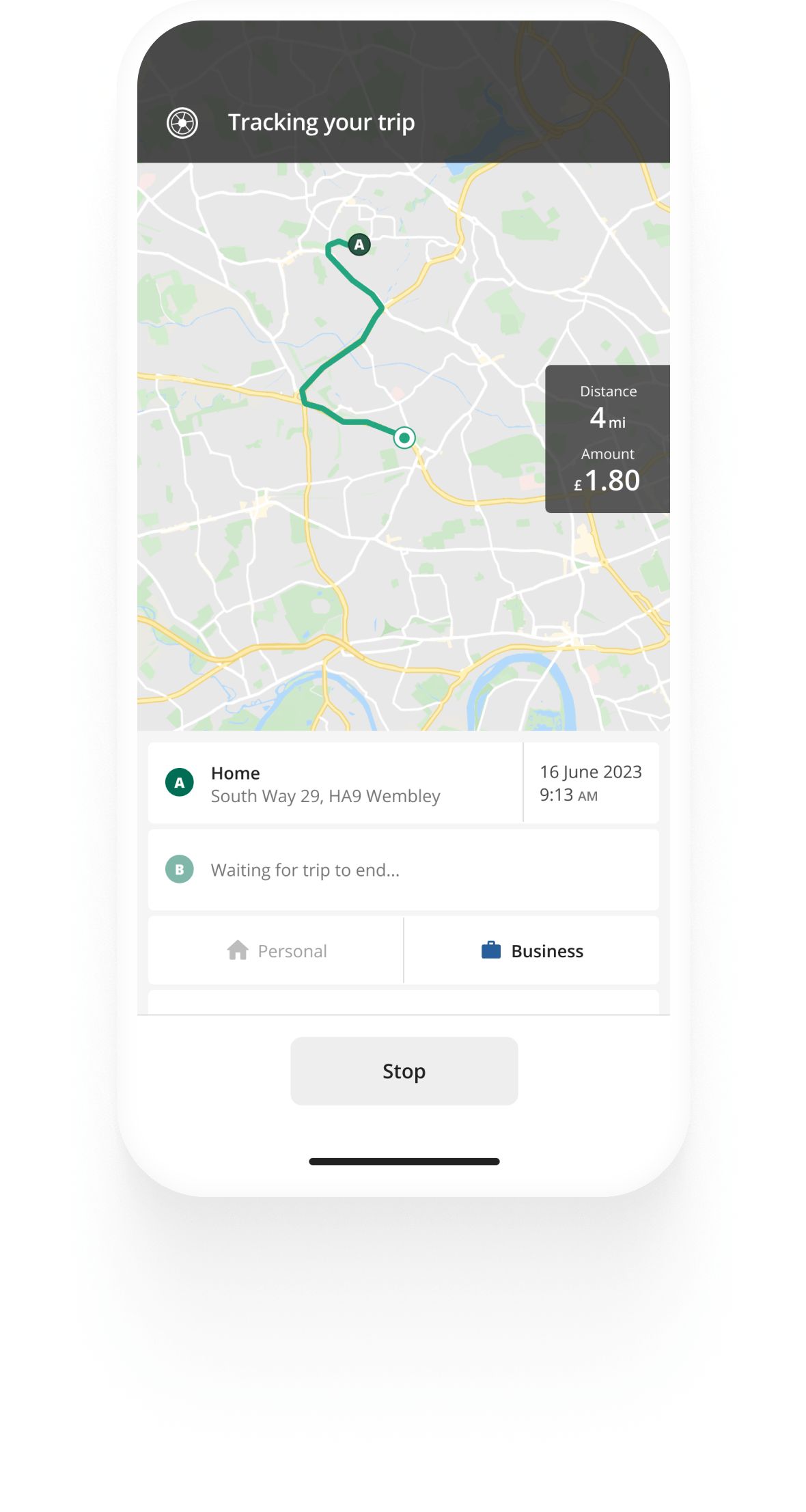Track mileage automatically
Get started
Do I need business car insurance?
If you’re an employee or a self-employed individual and use your car for work-related purposes, you will need business car insurance.
This article covers the different types and classes of car insurance you can choose from in the UK, based on your profession and intended vehicle use.
When business car insurance applies
You need to buy a business car insurance policy if you drive for work-related reasons, or if driving is an integral part of your work, for example when transporting goods or driving passengers (in this case, you need to look at commercial insurance).
Here are some examples of journeys for which you will need basic business car insurance:
- Driving from your normal place of work to another work location
- Going to client meetings
- Travelling away to do training/participate in a conference
- Running an errand for your employer


Mileage tracking made easy
Trusted by millions of drivers
Automate your mileage log Automate your mileage log

Automatic mileage tracking and HMRC-compliant reporting.
Get started for free Get started for freeTypes of car insurance
In the UK, business car insurance is essentially the third level of coverage you can opt for when you take out a car insurance policy. The first two types of standard car insurance do not cover driving for work.
Social, domestic and travel (SD&P)
The most basic car insurance, which covers only personal, day-to-day driving. It’s not sufficient for any work-related driving.
Social and commuting
Social and commuting insurance covers personal use of the vehicle (SD&P) and commuting to and from a permanent place of work (which doesn’t constitute business driving and, therefore doesn’t require business insurance).
If you use your vehicle for anything work-related beyond the daily commute, you need to upgrade to business car insurance.
Note: Self-employed people often consider their home their normal place of work. In this case, any work-related travel away from home must be covered by business car insurance.
Business (class 1)
The standard level of business insurance coverage. It will cover travelling between different work sites and to client meetings. It would apply, for example, to cleaners driving between different household or estate agents.
However, if you transport goods or passengers, or provide door-to-door sales, class 1 will not be sufficient.
Business (class 2)
Class 2 offers the same insurance package as class 1, but you can add a named driver to your policy. That could be a co-worker, who also drives for business in the same company. Similarly to class 1, this also does not cover salespeople, taxi drivers or delivery couriers.
Business (class 3)
For frequent business drivers, class 3 is the best option. Consider it if you drive long distances between client locations or provide door-to-door sales across the country. If driving is the main part of your business, you need to purchase commercial insurance.
Commercial insurance
If your business relies on your vehicle, you need commercial insurance. That could apply to:
- Taxi drivers
- Lorry drivers
- Driving instructors
Keep in mind, food delivery drivers or couriers do not fall under this category. They usually have to be covered by special hire & reward (H&R) insurance in additional to a regular policy. Consult your own insurance provider on what the best policy is for your unique situation.
Temporary business insurance
Temporary business insurance can be taken out for a shorter period of time, for example for a one-off business trip. Temporary cover usually provides the same perks as normal insurance, and can be taken out with an existing policy or from a separate insurance provider. You can choose for how long you want to be insured, which can usually be any period of time up to 30 days.
Company car vs personal car
If you drive your own car for work, either as self-employed or an employee, obtaining the correct business insurance is your responsibility.
If you drive a company car owned or leased by your employer, they will normally handle the insurance procedures.
FAQ

Tired of logging mileage by hand?
Effortless. HMRC-compliant. Liberating.
Top posts
- HMRC advisory fuel rates 2025
- Automate mileage tracking in healthcare with Driversnote Teams UK
- Driversnote Teams vs MileIQ for teams
Related posts
Free mileage log book template
Latest update: 7 May 2025 - 2 min read
Whether you're an employee or a business owner, it's crucial to keep good mileage records in a mileage log book.
HMRC Mileage Guide
Latest update: 2 April 2025 - 5 min read
Welcome to our guide on mileage claims and reimbursement in the UK. This guide will walk you through the rules that apply to your situation.
HMRC advisory fuel rates 2025
Latest update: 5 December 2025 - 5 min read
HMRC has announced the revised advisory fuel rates, effective 1 December 2025. See how they apply to employees and employers.
.svg)

